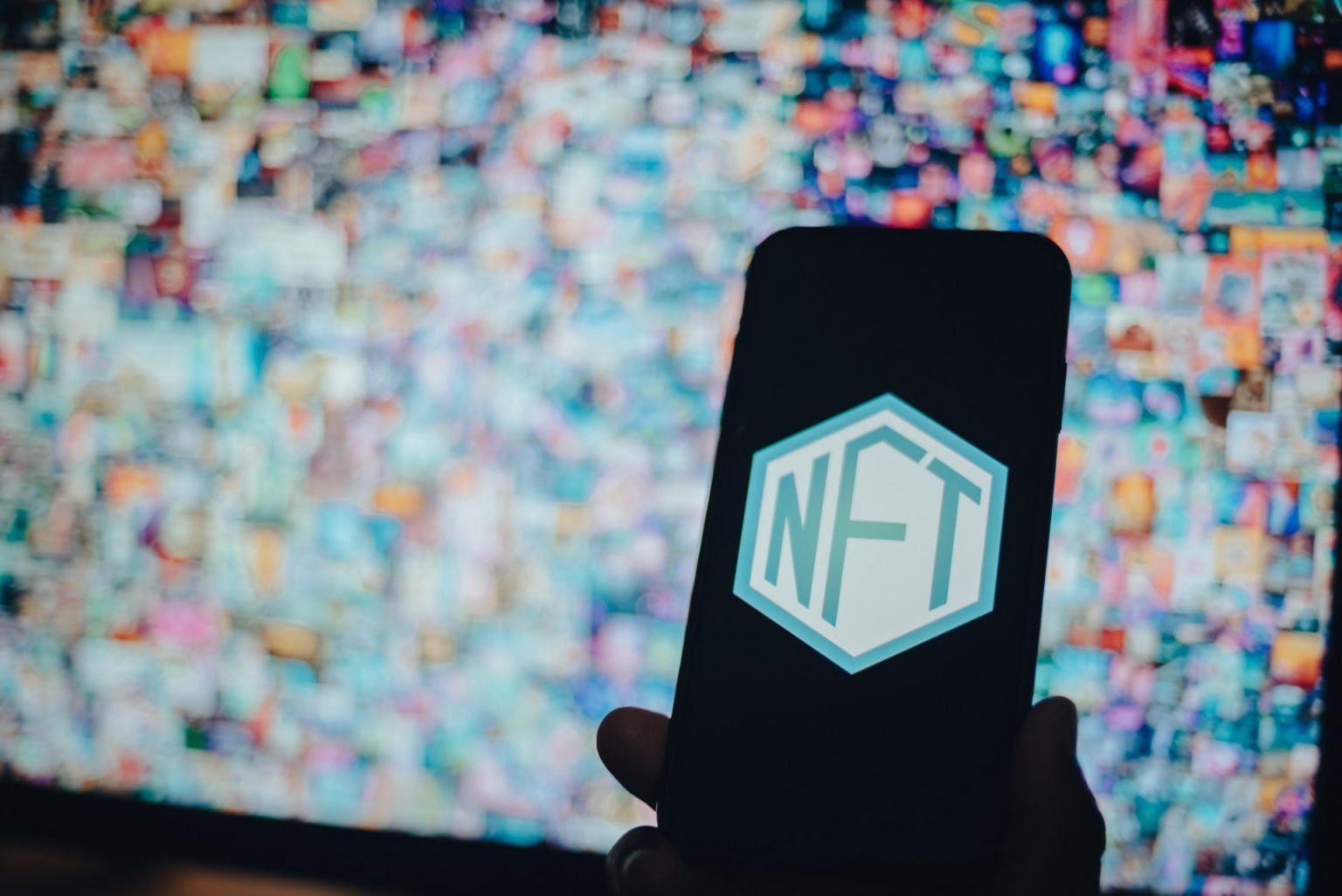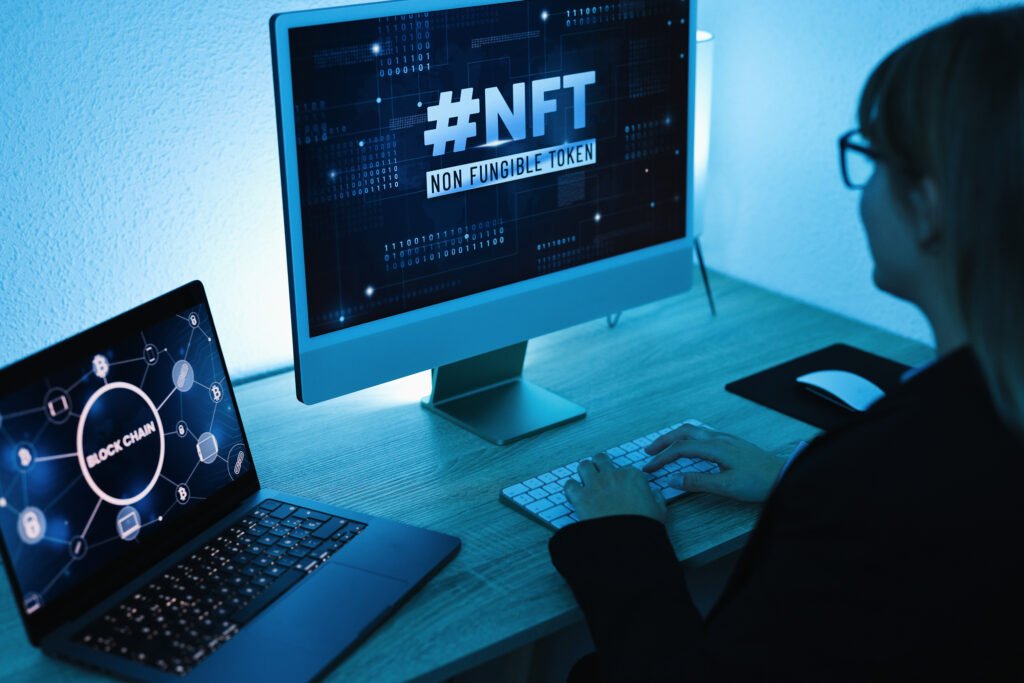News
20 Apr 2022
How are NFTs supposed to change events?

Subscribe to CX E-News
Non-fungible tokens (NFTs) seem to be taking the internet by storm. For those who have yet to come across them, they are a fresh application of the blockchain technology behind cryptocurrencies, this time in the form of a provably unique asset. There are many uses for NFTs being invented and tested at the moment, including some that could cause some big ripples in the world of events.
What are NFTs?
Non-fungible tokens (NFTs) seem to be taking the internet by storm. For those who have yet to come across them, they are a fresh application of the blockchain technology behind cryptocurrencies, this time in the form of a provably unique asset. There are many uses for NFTs being invented and tested at the moment, including some that could cause some big ripples in the world of events.
In order to properly appreciate the use cases of NFTs, it is important to first understand what they are. For that, it helps to understand how the blockchain works. The short version is that it is a network of ledgers of digital information, each hosted locally on thousands of computers. Since the information is decentralised and publicly accessible, it is much harder to falsify and corrupt, verging on impossible.
This technology, which is such a significant paradigm shift that it has earned the title of ‘Web3’, has most famously been used to create an entire economy parallel to those that run through major national banks: cryptocurrencies. Unlike traditional currencies, cryptocurrencies are impossible to forge and easy to trace. Those two features got people thinking about other applications of the technology and the NFT is the result, an asset other than a currency that is impossible to forge and easy to trace.
The most obvious and most popular application of NFTs so far has been artworks. The Bored Apes Yacht Club is the Bitcoin of the NFT space, being widely known even outside of crypto communities. Put simply, it consists of 10,000 subtly different pictures of apes, each of which is logged on the blockchain. While the picture itself can be easily copied, just as you can photograph a painting in an art gallery, the blockchain can prove who the actual owner of these increasingly valuable works is.

The future of NFT events
Sean Specie, Chief Strategy Officer at Elevate Experiences, admits that he is a “non-technical person”, but one with a significant interest in cryptocurrencies and NFTs from the perspective of an event professional with extensive experience. He said that while the company he works for has yet to use NFTs for events, he does personally believe that they will impact the future of the industry in several ways. And that they already are doing so.
He told us that he sees two ways in which NFTs will impact the events industry; events being formed around NFTs or NFTs being integrated into existing events. On the first of these use cases, he said “I don’t own a CryptoDads NFT but I do want one because I’ve heard that the community is great. I know that they had an in-person meet-up at ETHDenver just for CryptoDads holders. People flew in from all over the world in order to meet up in person with these people that they’ve been interacting with online.”
He added that NFT.NYC, one of the leading NFT events, is holding its fourth meet-up in New York City in June 2022 and, while he has not personally attended it, he knows people who have. “They said that it almost feels like an early SXSW. It’s like different communities coming together but united under one banner.”

NFTs in established events
On the second of Sean’s suggested use cases, there have already been several successful applications. As a single small example, Playboy hosted a private party at NFT.NYC using their own NFTs as entry tickets, with attendees needing to show their wallet to prove its authenticity. Sean can foresee similar applications like this beyond crypto communities, too. With larger public events like sporting events and concerts, it could reduce the risk of ticket forgery.
In fact, Sean’s vision is already a reality. Colby Mort works at GET Protocol Foundation with a small yet dedicated team determined to change the nature of the ticketing industry. He spoke to BetterCast on our podcast about the system they have developed, which uses NFTs as tickets.
“Each NFT is a unique instance, each of which is minted under a smart contract,” he said, admitting that this all sounds like gobbledygook if you don’t know about the blockchain. “Essentially, a smart contract is a blueprint for an NFT ticket. So each ticket is unique but follows the same rules. The benefit of that is that each smart contract has a unique address. If I need to validate that an NFT belongs to that contract, I just need to do a quick search within that address.”
GET’s system stores your NFT ticket on your phone and generates a rotating QR code, which refreshes every 15 seconds. This ensures that the ticket cannot be copied and shared. Additionally, as soon as the ticket is scanned, the metadata in the NFT is changed to record that fact.

Making a ticket more than a ticket
The use of NFTs for ticketing is still in its infancy, mostly only used at small, niche events. However, the use of them as an added reward for buying a ticket is already growing. The NFL issued commemorative NFTs to people that had tickets to go to the Superbowl for example, and the use of proof of attendance protocols (POAPs) is growing.
A POAP is effectively the digital equivalent of keeping your lanyard or ticket stubs as a souvenir. However, they can then be used for giveaways and special access at or after the event. This is already something that can be done with physical tickets, such as using ticket numbers for raffle draws, but using NFTs simplifies the process and creates a broader range of options.
The YellowHeart app has been created around this concept. It launched in October 2021 and Josh Katz, CEO of YellowHeart, said in a statement: “The YellowHeart Wallet is a major milestone for the live event industry. The app allows fans, artists, and venues to interact with Web3 marketplaces, which will greatly evolve the fan experience and create long-term recurring revenue opportunities for artists, teams, and venues. Artists, teams, and venues that don’t adapt will get left behind.”
YellowHeart chief procurement officer Thomas Emmanuel added: “Connecting tickets to blockchain technology via non-fungible tokens means that rewards, content, access, discounts and more can be granted on a one-to-one basis. For example, a fan who has, say, the Maroon 5 community token or any other artist or brand-specific community token, would open the app and simply slide over to the ‘Rewards’ tab. From there they can access the various benefits of the NFT, such as early entry, offers before or after the show at a partner establishment, after parties, along with exclusive content like video moments, highlight montages, or concert recordings.”
NFT communities as customers
One of the more remarkable features of NFTs is that they inevitably create communities. The CryptoDad community mentioned earlier is just one of many examples. Sean likened them to the homeowner’s association in his neighbourhood of Jacksonville, which offers bonuses for membership such as access to two pools and a sand volleyball court through a keyfob only issued to HOA members.
“What’s interesting about NFTs, and another reason why I find them interesting from an event professional’s standpoint, is that I could get the HOA to hire me and do events for them,” he said. “They do events where they bring in food trucks and DJs and there’s the 4th of July fireworks shows, just for people that live in the neighbourhood. The interesting thing about NFT communities is that, if you issue 10,000 Bored Apes and people buy them, all of a sudden you have a community where these people are verified community members and you can start doing events for them. These are potential clients that are being formed right before our very eyes.”
Colby added that, for corporate events, NFT tickets benefit sponsors by helping to provide a community that they know are interested in their products or services, meaning that benefits and promotions can be much more targeted. NFT tickets may even grow in value after events because they provide membership to that community and the original event hosts can still earn from resales.
NFT scalping
It is worth noting that while NFTs do prevent ticket forgery, they have been significantly less effective at preventing scalpers. Bots have been very successfully used to buy up every available token as soon as they are issued, allowing these digital scalpers to then wait for the value to increase and resell them for a profit.
As an example of this, Time Magazine issued 4,676 TIMEPiece NFTs in September 2021 and, despite attempts to limit the risk of bots buying the whole lot, it wasn’t long before they were completely sold out. Originally priced at about US$310, their resale value was about US$9,500 at the lowest.
In spite of this embarrassing blunder, Time President Keith Grossman is determined to give it another try. “We’re going to make sure that the next time that we do this, everything that we have seen that went wrong or that didn’t go as we planned, is fixed,” he said in a statement. With NFTs still a fairly new technology, there will inevitably be oversights like this. This is still a learning period.
Why aren’t NFT tickets already more widespread?
The most significant obstacle presently keeping NFTs out of widespread use in events is the adoption rate. Despite their fame, even cryptocurrencies still hold only relatively niche appeal, mostly due to a lack of understanding of the technology among most of the world’s population.
“There’s a little bit of a learning curve that you have to go through,” Sean said. “It’s not necessarily hard to understand, but there are some nuances that people aren’t used to. I imagine that it would be a lot like when credit cards first came out. I think that the technology might advance a little bit faster than we think, though. I think that the events industry could be a catalyst for that, such as through using NFTs for ticketing.”
He also believes that more big companies and institutions becoming early adopters will help to normalise the technology and accelerate its widespread use. In particular, he would like to see more ticketing companies like Ticketmaster using NFTs.
GET Protocol is already working in this direction. Colby said: “We’ve made sure that our system is as accessible as possible, so an event manager doesn’t need any knowledge of NFTs and blockchain to tap into our infrastructure. They sell tickets through a normal web shop and you would have no idea that NFTs exist in this system, but whenever a ticket is purchased it is actually minted as an NFT. I think it comes down to making sure that whoever builds the infrastructure makes it as accessible as possible.”
“That being said, I do think there is an element of education that is needed for event organisers to understand what NFTs can be used for. That’s something that I think is going to come over time. Right now, the whole Web3 space operates very close to the code layer, which is not very user friendly. There are already tools that are starting to move the experience away from that, though.”
Subscribe
Published monthly since 1991, our famous AV industry magazine is free for download or pay for print. Subscribers also receive CX News, our free weekly email with the latest industry news and jobs.






